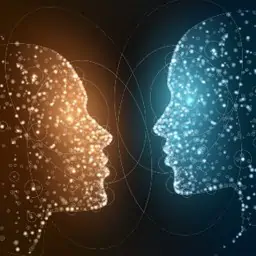“Will dating your friend ruin the friendship?”
It’s a question we’ve all asked ourselves, quietly contemplating taking a platonic relationship to the next level. Sometimes it’s what we ponder while suffering silently in the dreaded “friend zone.”
It’s also the classic go-to excuse for crushes who aren’t interested in escalating a friendship to something more, usually because they don’t share in the romantic feelings. It’s a nice way to let someone you care about down. People rarely seem as eager to maintain those boundaries when they’re truly attracted to each other.
Motivations aside, it’s a fair concern to raise. Friendship compatibility is a different equation than being romantically linked and attempting to push things further runs the legitimate risk of destroying the relationship altogether. Then, not only are you still single, but you’ve also lost someone you care about.
Whether or not dating a friend is a good idea depends on a wide range of factors — many of which are unique to the two parties involved. With so many variables at play, there’s no easy answer.
Before you approach a friend about a romantic relationship, there are some things you should consider before. If you ask yourself the right questions and answer them honestly (not letting desire cloud your judgment), you should at least have an idea of what to expect, and how much of the relationship you’re risking by trying to date.
Attempting to Date a Friend Is a Gamble
Dating a close friend makes perfect sense. You already enjoy each other’s company, you’re familiar with their backgrounds, dating history, and quirky traits, and you have plenty in common. You already know all the stuff that takes several dates, if not months of courtship, to uncover. And you still want each other in your lives – that’s a great start!
It all seems so obvious on paper. If only human interactions were so simple.
In reality, anytime you fundamentally alter the nature of a relationship, you risk causing irreparable harm. Personality traits that mesh well together as friends can become combustible as a couple. Flaws you gladly overlooked when the stakes were lower are suddenly put under the microscope.

Once you’ve crossed that line and had it not work out, it’s almost impossible to just rewind the clock, forget anything happened, and go back to being friends like before. And that’s if everything went well enough for you to start dating in the first place.
- It’s also well within the realm of possibility that merely confessing your feelings will be the death knell for the friendship. Your crush may feel betrayed – as if your entire relationship was built on false pretenses. They trusted and confided in you, but you had ulterior motives.
- It could also work out perfectly. Maybe you both want the same thing and are scared to admit it. Or maybe it’ll take some convincing at first, but once you’re together, the romance grows into everything you’d hoped. There’s only one way to find out. You can either act on your feelings and risk it all or suppress them and maintain the friendship, at the cost of always wondering “what if?” That’s the gamble.
When the Gamble Pays Off
The NY Post published an article written in 2015, titled “Is dating your best friend worth it?” written by Lindsay Putnam. According to the piece, a Bravo Media poll found the discovered the following:
“More than 1,000 people between the ages of 18 and 54 were polled to see if the risk of dating a best friend is worth the possibility of finding true love. Turns out, of the 76 percent of respondents who said they’d struck up a relationship with their best friend, 29 percent resulted in marriage.”
29 percent of the respondents who’d risked dating their best friend ended up getting married! Almost 30% of the people who take the risk have it work out? That’s incredible! A .300 batting average makes you a Hall of Fame Major League Baseball player!
And how great must it be for that 30% who pull it off? You actually like your friends; you choose to spend time with them. Once you’re in a relationship, there usually comes a time when you love your significant other and your lives are intertwined, but you no longer like them. Paraphrasing the late great Patrice O’Neal, it’s difficult to like and love a woman at the same time.
Is it possible that pairs of best friends who successfully marry are able to maintain a healthy like-love ratio for longer? Because at least they know each other outside the context of dating.

If you meet a person within the context of dating and romance, it’s at least two years before you meet the actual person. From being strangers to the two-year mark, you’re dealing exclusively with their Representative. The character that they show the world.
Sometimes, by the time you’ve peeled back the layers and reached the core of the onion, buyer’s remorse kicks in. With friends, the Representative only sticks around for a month or two. So, by the time you’ve become best friends, you’ve surely met the real person. If you’re still interested in getting together, I’d say that gives you a considerable advantage.
Why Are You Friends?
The reason best friend dating gets such a bad rap is that too many people are dishonest with themselves. You meet someone new and they’re nice to you, you love being around them, but fear rejection and end up waiting for an obvious sign that they’re interested.
- You may be missing signs, and they share your same feelings and are waiting for you to make the first move.
- It’s equally likely they don’t see you in a romantic light but enjoy some other quality you bring to their life.
- Maybe you entertain them, maybe you buy them things or treat them to exciting experiences. Maybe they think you’re funny, or a good conversationalist, or someone they can ask to help them move.
- If this is the case, there’s a 90% chance they know what you want and are praying to God that you don’t confront them with your feelings anytime soon.
Before you worry about whether dating your friend is a good idea or not, ask yourself two crucial questions:
1. Why Are You Not Already Together?
For however long you’ve known each other, you’ve been platonic friends. Why is that? What has kept you apart before now?
When you’re of dating age and single, if you meet someone of your preferred age and gender and like them enough to keep as friends, you’d first consider them as a potential romantic partner. If you’ve somehow avoided sexual tension, it’s probably because one of you isn’t interested.
These kinds of gradual friend-to-significant-other courtships usually take place when the two participants are young – and might have grown up or gone to school together – or when they’re coworkers. If you’re in one of those two settings, you still have a chance to make this relationship happen.
Be honest with yourself about why you’re not already together. Look at what you each bring to the friendship and objectively analyze what role you play in each other’s lives.
If the only thing holding you back is cowardice, you’re probably telling yourself that the only reason you haven’t made a move is that you’re such close friends and scared to risk it.
2. How Good of a Friend Are They Really?
Along the same line of thinking, are you sure you’re both “best friends” with this amazing connection that’s so special it must be protected at all costs? It’s so valuable, you’d rather repress your feelings and suffer in silence? That’s somehow better than going all-in, taking a shot at true companionship, and if it goes sideways, possibly losing them forever?
Please. Usually, we inflate the value of friendships we wish were something more, often because we know the other person doesn’t share the same feelings. Look inside your memory and replay the course of events that brought you to this point.
Are you sure this friendship is so irreplaceable? Come on; friends come and go throughout your life. You only get about three or four shots at a happy love life. For 80% of the population, taking the chance at dating is worth the prospect of losing them later.
Don’t Be an Orbiter
By the way, make sure this crush of yours is single before you start worrying about starting a relationship with them – much less how the ill-gotten partnership will affect the friendship afterward.
There’s no creature viler than someone who lays in wait, biding their time, and patiently orbiting the periphery of a relationship, playing the “he/she’s just a friend.”
Any opportunity to subtly undermine you is seized upon. “I can’t believe he said that to you,” “if I had a girlfriend like you, I would never do that (insert totally normal thing you did).” And when a chink in the armor reveals itself – usually after a big fight or drama – the Orbiter exists to be the shoulder to cry on.
Listen, we’ve all been there – fallen in love with someone who’s taken. It happens. But you still shouldn’t act on those feelings; it’s gross. You’re hitching your happiness onto someone else’s emotional turmoil – including your so-called “friends.”
Plus, what kind of foundation is that for building a relationship?
- For one, you’re willingly entering the deal as the rebound — a position that rarely has a long shelf life.
- Secondly, you’ll never be able to fully trust them around their friends. After all, if it happened to their last partner, why wouldn’t the same thing happen to you?
Dating a friend and building something that lasts – or at least doesn’t ruin the friendship if it fails — is challenging enough as it is; don’t lessen the odds further by tainting the union in scandal at its inception.
I’d argue that dating a friend that was seduced from orbit results in ruined friendships at least ten times more often than when everyone involved is single
Is It Possible To Go Back?
People come in all shapes and sizes, and thus, so do relationships – including friendships. A realistic possibility for one couple may not even be an option for another.
- What kinds of ups and downs have you two endured together already?
- How resilient are you?
- How personally do you both take things?
- If you start dating, it doesn’t work out, and they start seeing someone else afterward, can you handle it?
- Could you remain their friend in that scenario?
It’s possible you aren’t risking anything by dating. Maybe you’re the type of duo that’s levelheaded enough to give it a try, accept if it doesn’t work out, then cordially go back to being friends. It happens – I’ve done it! Several times.
When you’re lucky, you land in a wonderful “friends with benefits” territory. There’s enough familiarity and physical attraction for occasional bouts of intimacy, but you can’t be together every day.
That’s a fairly probable outcome that nobody ever discusses! Just because you date a friend and break, it doesn’t mean the outcome will be negative. You might land in a slightly better position than you are now, in the same level of friendship with random booty calls in the mix.
Be Honest With Yourself
If you’re worried about dating your friend and whether it might ruin your friendship, you’re not being honest with yourself. About what, I don’t know – but there’s a kink in the system somewhere. Maybe it’s because you don’t want to face the real reason you’re not already together.
Why Are You Friends?
If fear of rejection is holding you back, examine the reasons your gut is telling you it’s an outcome worth worrying about. Are you missing signs that they like you, or ignoring signs you’re a simp?
Are you clinging onto this “best friend” nonsense knowing they don’t want to date you but hoping that by keeping them close they’ll eventually change their mind?
Would you be friends without your romantic attraction?
What’s the Worst-case Scenario?
Assuming you and your friend decide to date, what’s the worth thing that could happen? Try to imagine things going as horribly as possible – how bad is it, really?
I’m guessing the worst-case scenario would mostly just bruise your ego. Big deal. Your heart hurts for a little while, maybe accompanied by a dose of humiliation, and you might lose their presence in your life. But at least you won’t be wasting each other’s time on false pretenses.
Can You Handle Rejection?
The last tip I’ll leave you with is to honestly analyze how well you handle rejection. Are you sensitive? Do you take things personally when they don’t work out? When you’re feeling shaken and self-conscious, do you lash out in retaliation?
Take a close look at how you’ve responded to disappointment, heartache, and social embarrassment in the past. If you’ve left a trail of mangled relationships and bad breakups in your wake, maybe you shouldn’t try to date your friend – or at least go into the arrangement with realistic expectations. It’s either going to work or you’ll inevitably hate each other.
Make peace with those possibilities and swing for the fences.
